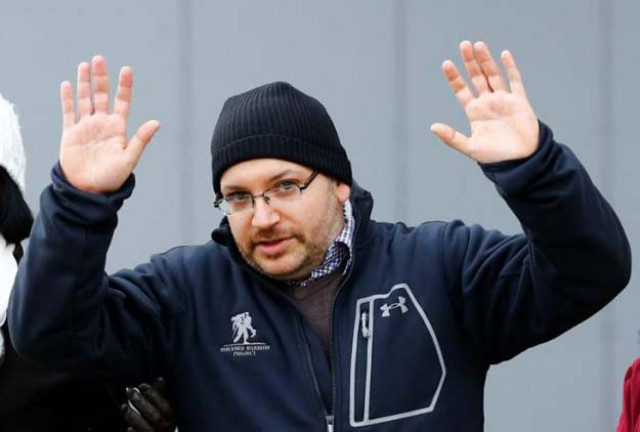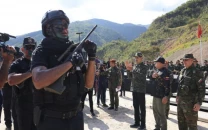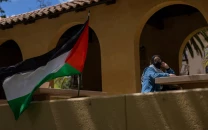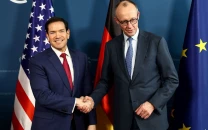US says payment to Iran used as leverage for prisoners' release
It is the first time US has said publicly that it used the payment as leverage to ensure the prisoners were released

Jason Rezaian, Washington Post reporter and one of the US citizens recently released from detention in Iran, poses to media outside the Emergency Room of the Landstuhl Regional Medical Center (LRMC) in the southwestern town of Landstuhl, Germany, January 20, 2016. REUTERS PHOTO: REUTERS
"The payment of the $400 million was not done until after the prisoners were released," State Department spokesman John Kirby told reporters.
"We took advantage of that to make sure we had the maximum leverage possible to get our people out and get them out safely," Kirby added.
White House denies Iran ransom payment
It was the first time the administration has said publicly that it used the payment as leverage to ensure the prisoners were released by Iran.
Three of the five prisoners, including Jason Rezaian, the Washington Posts's Tehran bureau chief; Saeed Abedini, a pastor from Idaho and Amir Hekmati, a former U.S. Marine from Flint, Michigan, as well as some family members, were part of a prisoner exchange that followed the lifting of most international sanctions against Iran following a nuclear deal in 2015.
One more prisoner, Nosratollah Khosravi-Roodsari, chose to remain in Iran, while a fifth prisoner, American student Matthew Trevithick, was released separately.
Both U.S. President Barack Obama and Secretary of State John Kerry have denied that the payment was ransom for the release of the prisoners or tied to the Iran nuclear deal.
The White House announced on Jan. 17 it was releasing $400 million in funds frozen since 1981, plus $1.3 billion in interest owed to Iran, as part of a settlement of a long-standing Iranian claim at the Iran-U.S. Claims Tribunal in The Hague.
US prisoners leave Iran, arrive in Germany, as Obama hails win for diplomacy
The funds were part of a trust fund Iran used before its 1979 Islamic Revolution to buy U.S. military equipment that was tied up for decades in litigation at the tribunal.
The payment was made by the United States in cash due to international sanctions against Iran.
The administration has maintained that negotiations over the funds and the prisoners were conducted on separate tracks and were in no way linked.
Representative Jason Chaffetz, chairman of the House of Representatives Committee on Oversight and Government Reform, has asked Kerry to appear at a future committee hearing to discuss the payment.


1726734110-0/BeFunky-collage-(10)1726734110-0-208x130.webp)
















COMMENTS
Comments are moderated and generally will be posted if they are on-topic and not abusive.
For more information, please see our Comments FAQ